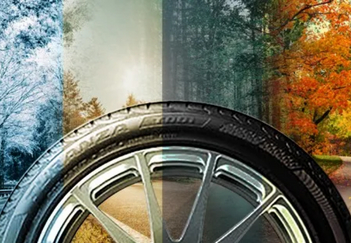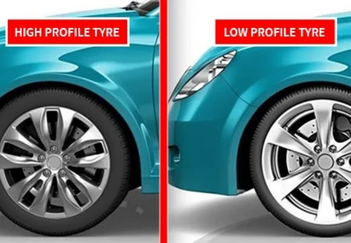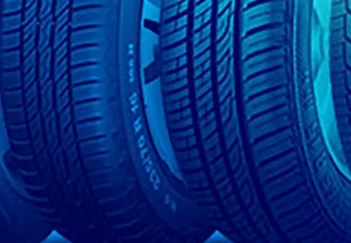
January 27, 2023
Summer vs. All-Season Tyres: Which Is Better?
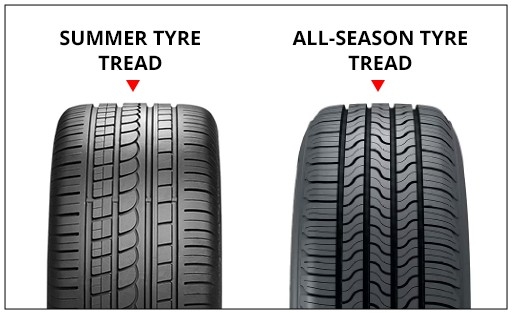
How's the weather in your area? Dry? Wet? Downright unpredictable?
The weather isn't just a starting point for a conversation; it's also an important consideration when buying tyres. Why? Tyres are grouped into categories to guide customers in their purchases. These include vehicle type ( passenger car, SUV,commercial) and terrain ( all-terrain, mud terrain,) highway. But these rubber rollers are also classified according to weather ( summer, winter, all-season).
In this article, we'll focus on two weather tyres—summer and all-season. Both are designed for road safety and vehicle performance but vary in features to match your driving conditions. What are their unique characteristics, pros and cons, and most importantly, which is the right one for you?

What are Summer Tyres?
Summer tyres are made for warm weather, particularly in temperatures above 7°C. Don't even think of using summer tyres during winter because they stiffen and lose traction in cold temperatures. When this happens, you're most likely to skid on the road. Stiff tyres can lead to cracked rubber, which may also lead to accidents.
Telltale Traits
• Softer rubber compound
Summer tyres are all about maximum performance and handling. Sports and performance vehicles are fitted with summer tyres, whose soft rubber gives excellent pavement grip, boosting steering precision, braking and cornering abilities.
• Aggressive tread pattern
A mean-looking tread design makes your ride look sportier and keeps you safe when it's raining. Although wet grip isn't the summer tyre's strong suit, it compensates with its big grooves and blocks that help lower hydroplaning risks.
• Shallower tread depth
Because summer tyres are all about speed and crisp performance, their tread depth is shallower than standard tyres. This feature allows them to stabilise your ride as you test the limits of your vehicle.

Yay to Its Advantages
• Better responsiveness
Racing drivers know that to win a competition, every fraction of a second counts, which is why their tyres need to respond quickly to their driving demands. Summer tyres seek to replicate this kind of motorsport experience on the road, so you're guaranteed a fast and precise drive when you use them.
• Increased wet handling
Though summer tires perform best on dry roads, their tread patterns are engineered to drain water to resist hydroplaning. Still, you need to be extra cautious when driving in wet conditions.
• Perfect for the warm climate
If you live somewhere generally warm, go for summer tyres, which retain their flexibility and grip even when it gets hot. As a result, you enjoy superb safety and overall performance throughout the life of your tyres.
Boo to Its Disadvantages
• Not for winter
If you live at the foot of the Australian Alps, then avoiding summer tyres when it's winter is a no-brainer. Why? Their softer compound means their rubber will stiffen and possibly chip in the cold. Their shallow tread won't be able to dig deep into ice and snow, which results in your loss of control.
• Less durability
People use summer tyres for their impressive performance rather than their longevity. Because of their soft rubber compound, these tyres don't last as long as their standard counterparts. Expect frequent replacements when using summer tyres.
• Limited tire rotation
Because of their distinct tread patterns, some high-performance summer tyres must be rotated in a certain way. You have to read the owner's manual to learn how to rotate these tyres..
Best Summer Tyres
Here are some of Tyroola's best summer tyres—from premium to mid-range and budget!
Premium
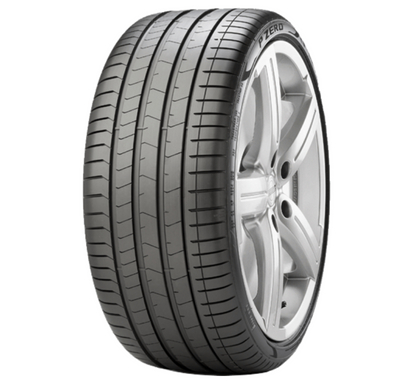
Pirelli P Zero
This ultra-high-performance summer tyre is equipped with run-flat technology, which means you can still drive at a limited speed over a fixed distance with a tyre puncture. Its nano-composite compound guarantees grip while boosting steering response.
Mid-Range
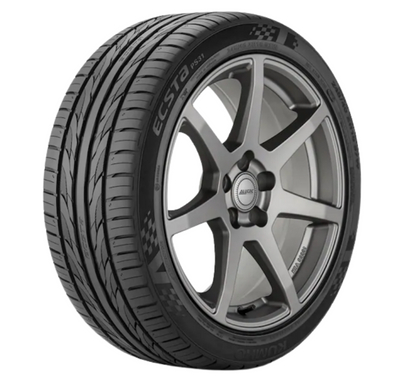
Kumho Ecsta PS31
This tyre is perfect for drivers looking for high-speed stability and exceptional capabilities in wet braking, cornering, and hydroplaning resistance. Additional microgrooves with diagonal siping promote better tread wear and tyre longevity.
Budget
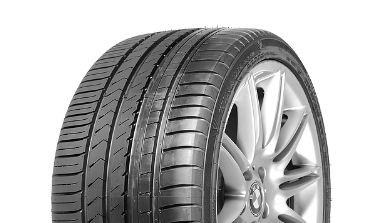
Winrun R330
This ultra-high-performance summer tyre, designed for a wide range of passenger cars, delivers superior safety performance while making your ride look good at a highly affordable price.

What are All-Season Tyres?
All-season tyres promise dependable traction and performance across a more extensive range of weather conditions and temperatures. Do you often drive in the rain? All-season tyres can give you an impressive grip on wet pavement and even light snow!
Telltale Traits
• Harder rubber compound
Its more rigid rubber boosts all-season tyres' performance in colder conditions, helping them remain flexible when temperatures drop.
• Moderate tread pattern
These tyres' less aggressive tread pattern means they're a jack-of-all-trades, able to maintain their performance in various conditions.
• Deeper tread
A deeper tread means more capabilities in clawing through challenging surfaces like roads soaked with rain or sprinkled with snow.

Yay to Its Advantages
• Versatiliy
Does the weather in your area tend to change fast? All-season tyres are perfect for this dilemma because they're equipped to handle all sorts of conditions.
• Boosted Longevity
Unlike summer tyres, the all-season tyres' more robust rubber equates to better resistance to wear and tear. With its longer tyre life, you get to save money!
• Convenience
With all-season tyres, there's no need to switch tyres between seasons, which can be costly and time-consuming.
Boo to Its Disadvantages
• Diminished performance
Using all-season tyres gives you reliable performance throughout the seasons. However, they will always perform less than the tyres designed for specific weather conditions. Summer tyres offer better traction and handling in warm conditions, while winter tyres are still your best option in extreme cold.
• Reduced fuel efficiency
These tyres' harder rubber compound produces more rolling resistance, which keeps your tyres from moving forward. When the engine exerts more effort to propel your tyres, it uses more fuel, resulting in lower gas mileage.
• Not for lots of ice and snow
You'd still need to change your all-season tyres into proper winter ones during those cold months. Nothing beats the stability and safety of winter tyres, which shortens braking distances and improves grip in icy and snowy conditions.
Best All-Season Tyres
Shopping for all-season tyres? Get to know your best options based on your budget.
Premium
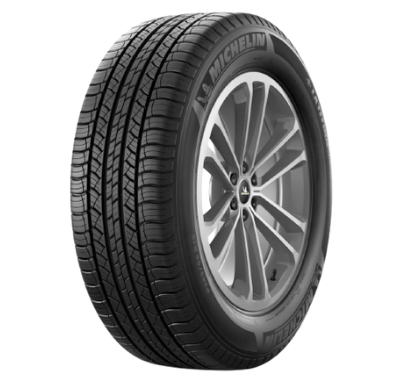
Michelin Latitude Tour HP
This all-season SUV tyre offers high levels of performance and safety while displaying maximum comfort and longevity.
Mid-Range
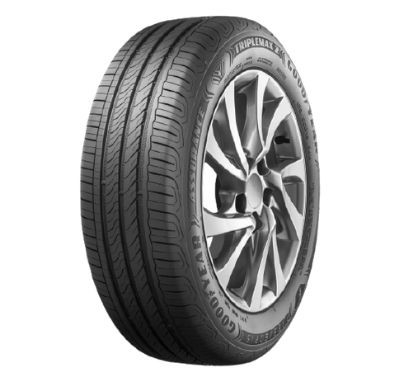
Goodyear Assurance TripleMax 2
A summer tyre for sedans, compact cars and crossover SUVs, the Assurance Triple Max 2 delivers extra safety in wet weather conditions while giving you a comfortable and quiet ride.
Budget
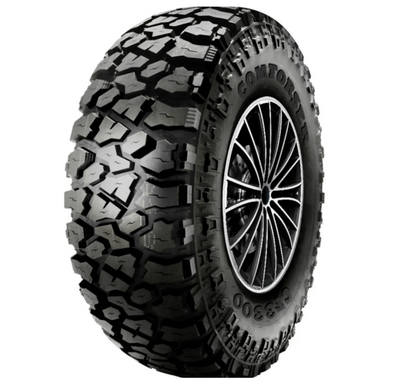
Comforser CF510 HP
This tyre's consistent and dependable performance in various weather conditions guarantees your safety throughout the year. Meanwhile, its asymmetric design ensures exceptional handling and cornering abilities.

The Verdict
When buying tyres, you should also consider the climate and driving conditions where you live. Buy all-season tyres if you drive in different weather situations, but if you crave high performance in an area that's mostly sunny? Go for summer tyres!
Get your tyres at Tyroola, which guarantees the best promos and prices online!
